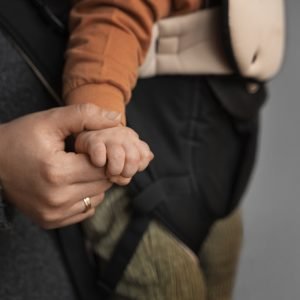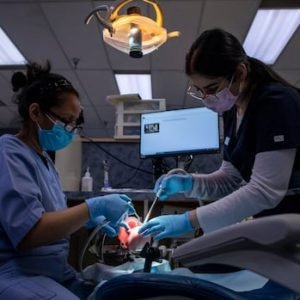
- Rebecca Wallersteiner
- London
- wallersteiner{at}hotmail.com
John Matheson combined his career as a GP with being an accomplished bridge player, winning the Scottish Cup a record 18 times—the first in 1969, the last in 2022. His achievement was all the more impressive considering that he eschewed major competitions for 15 years to concentrate on medicine and his young family.
Matheson became interested in the game in his late teens through reading the bridge columns by Terence Reese in the Observer and Kenneth Konstam and Boris Schapiro in the Sunday Times. He funded his way through university with his bridge winnings and was so successful that he managed to buy a car. His mother disapproved of the considerable sums he won, considering them “ill gotten gains.”
Matheson played his first Camrose tournament—where England, Scotland, Wales, Northern Ireland, and Ireland compete against each other—with John McLaren in 1963.
Interviewed by Samantha Punch for Bridge: A Mind Sport for All, earlier this year,1 He described one of his most memorable moments in the sport as the first time he won the Gold Cup in 1973—“although a Scottish team had won by then, it was very rare for them to get through to the final stages.” He won his second and final Gold Cup in 2006. He described this as “a tight, tight” match and one where he made an error late in the game.
“We won by a very, very small amount. And this could have cost it,” he said.
Bridge is played in pairs and Matheson had a reputation for being a difficult partner. He said that as he got older he worked hard at partnership harmony.
But Punch remembers him as being magnanimous when she knocked him out of a Scottish Cup match. “He must have been quite cross and disappointed as my team was much weaker than theirs, but sometimes you can get lucky in bridge if it is a short match and your opponent is not on form.
“He immediately came over and congratulated us. That, to me, shows what kind of a person he was—kind and always supportive and encouraging of other players.”
For Matheson the key to being a good bridge player was a combination of psychology, control of one’s emotions, a harmonious partnership, and strategic thinking. “I’m sure his skills as a GP helped at the bridge table, particularly in terms of analysis and the ability to keep an open mind and explore various options,” said Punch.
Aside from his 18 Scottish Cup wins, Matheson’s greatest bridge achievement was his bronze medal when he partnered Willie Coyle in the seniors’ teams at the 2012 European championships in Dublin—though the team was close to winning the whole tournament.
Matheson was born in the Gilmerton district of Edinburgh, on 22 January 1945, son of John, a senior trade union official, who was on one of the first delegations to visit the Soviet Union, and Jean (née Park). He was the middle of three children and was educated at Harrow County Grammar School in north London, where he was athletic and enjoyed playing cricket and whist, and Daniel Stewart’s College in Edinburgh. He read medicine at Edinburgh University.
After qualifying he became a junior doctor at St John’s Hospital in Livingston, Scotland, before becoming a GP—first in Falkirk and then at the Jamieson medical practice in Muirhead, North Lanarkshire, where he became a partner. Angela Sturrock, who joined the practice in 1997, said he instilled “a great sense of fairness in the practice, but also fun.” At the time, the practice had 10 000 patients and was split between Chryston and Moodiesburn, a mining village.
He met Trish Horswill, an actuary, at the New Melville Bridge Club in Edinburgh and they married in 1969. She later taught maths. The couple had two children: Robert, born in 1973, and Janie, born in 1974. During this time Matheson stayed away from major bridge competitions to bring up his children and focus on medicine. He also co-wrote a bridge book, Improve Your Opening Leads (1982).2 Once he became involved in organising the practice rota he was able to plan ahead. “If it was the Scottish Cup final, I could juggle the rota around,” he said.
In his retirement, he focused on bridge, writing for Scottish Bridge News, and mentoring young players.
After he developed Parkinson’s disease, Matheson played bridge online, with his wife Trish clicking the cards he wanted to be played. He won the Scottish Cup for the last time, aged 77, playing online in 2022. He is survived by Trish, their son Robert, and three grandchildren. His daughter, Janie, died in her 20s.
John Alexander Matheson (b 22 January 1945; q Edinburgh 1968), died from advanced Parkinson’s disease on 15 September 2024








